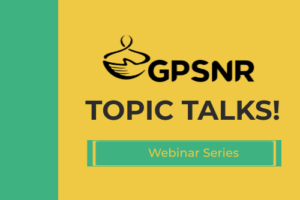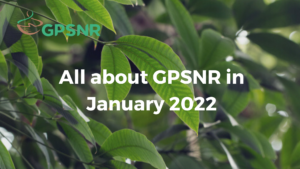GPSNR Topic Talks! is a new webinar series organised by the GPSNR Secretariat and presented by GPSNR members. The webinars will take place over three Tuesdays in October and November, and will cover three main themes around sustainability and the global natural rubber supply chain.
The first Topic Talk, a presentation by Philippe Thaler from CIRAD on the implications of EU legislation on imported deforestation, took place just yesterday night. The webinar was well attended by GPSNR members from various membership categories. In his presentation, Philippe covered the current status of EU commitments towards avoiding imported deforestation and how France has started implementing its policy. He also elaborated on the demand from French institutions to CIRAD to assess compliance with this policy in natural rubber. He concluded with some examples of how GPSNR can demonstrate the platform’s positive impacts in this context. The Q&A session afterward allowed for a deeper dive into the topic, as well as opening up some interesting questions on the use of alternative tools apart from compliance and assurance that can also help stakeholders progress towards their zero deforestation goals.
The next Topic Talks will focus on the themes of smallholder solutions as well as assurance and smallholders. More details on the upcoming webinars are provided in the subsequent section of this article.
Smallholder Solutions: From Income Diversification to Landscape Approaches
3 November 2020 | 7PM (GMT+8)
Click here to register
This webinar consists of two presentations:
“A landscape-level approach to inclusion and capacity building for rubber smallholders”
Presented by: Kirana Megatara, Proforest & SNV
This presentation is based on experience from the Kelola-Sendang project in South Sumatra, where SNV, with Proforest support, worked with rubber smallholders in the context of a large jurisdictional initiative. New links were built between these groups and a crumb rubber factory buyer in the Kirana group, helping to streamline the supply chain and open channels of communication on sustainability issues.
“Exploring Smallholder Solutions in the Rubber Sector – The Processing and Sale of Rubberwood to Support Smallholder Financing in Indonesia”
Presented by: WWF with Financial Access
HeveaConnect, Target Corporation, and World Wildlife Fund are engaged in finding solutions to enhance the production and trade of sustainable natural rubber. The three organizations came together in 2019 around the shared interest in understanding how the processing and sale of rubberwood might incentivize the adoption of sustainable practices by natural rubber smallholders and enhance their livelihoods. We enlisted the services of Financial Access to analyze the potential of rubberwood to serve as a mechanism to support smallholder financing in Indonesia. Although the scope of the analysis was limited to two provinces in Sumatra, the findings of this study could be used there and elsewhere in Indonesia to inform the development of sustainable natural rubber initiatives that include the processing and trade of rubberwood as one of several strategies to support equity in natural rubber supply chains.
Assurance and Smallholders: Learning from Existing Schemes
24 November | 7PM (GMT+8)
Click here to register
This webinar consists of two presentations:
“FSC Smallholder Certification Solutions”
Presented by: FSC
The presentation will cover FSC’s solutions for smallholders to become certified. First, an overview of the evaluation of certification solutions for smallholders will be given. FSC’s existing solutions will be covered, with a focus on the benefits for FSC Group Certification. Next, solutions in the pipeline will be covered, addressing the impact of pilot projects and highlighting success stories.
“PEFC, a system of choice for rubber smallholders”
Presented by: PEFC
Through a comprehensive explanation of PEFC, PEFC will elaborate further on their unique bottom-up approach in standard-setting and certification. Why and how this approach makes PEFC a system of choice for rubber smallholders and all companies involved in the natural rubber supply chain. They will also showcase current collaborative projects with their national members and companies to support smallholder producers. PEFC will explain how it will benefit GPSNR members and the work that GPSNR is engaged in.






